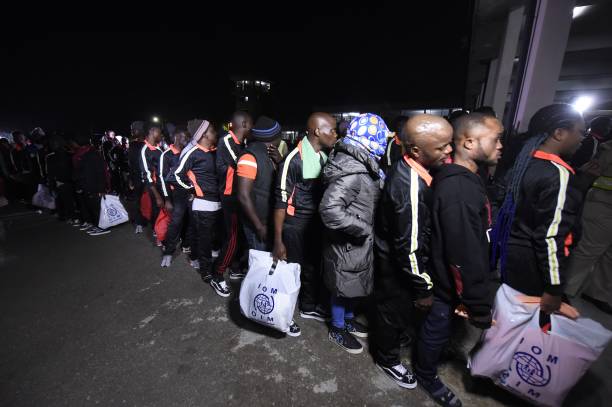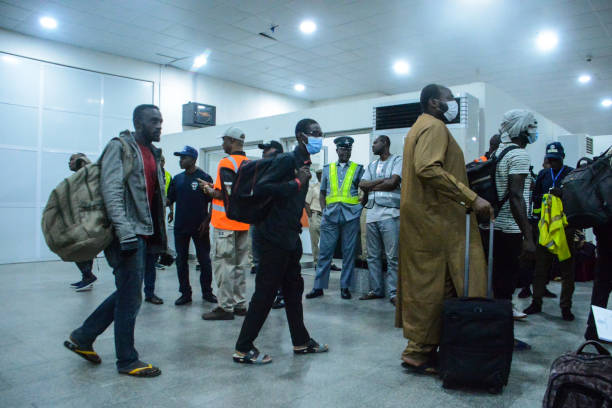In 2017, Ebele left Nigeria for the promise of a better life in Italy. She had dreams—of safety, stability, and enough money to support her family back home in Benin City. Like many others, she endured a treacherous journey through the Sahara Desert and Libya, hoping it would all be worth it. But six years later, Ebele is back in Nigeria, not quite the same woman who left.
“I thought I’d find peace abroad,” she says quietly. “But I found fear, struggle, and loneliness instead.”
Ebele is one of thousands of Nigerians who left the country in search of greener pastures but have since returned—some voluntarily, others through deportation or repatriation programmes. Their stories are layered, filled with both heartbreak and hope.
Why They Left
For many, the reasons are familiar: lack of jobs, insecurity, poor healthcare, and frustration with the system. Young Nigerians especially were drawn to the idea of Europe, North America, or even neighbouring African countries as places where hard work paid off and dreams came true.
“Every day in Nigeria felt like a battle,” says Chuka, a returnee from the UK. “The system makes you feel like you’re wasting your life.”
Some left through formal routes—student visas, work opportunities, or family reunification. Others, like Ebele, took the risky path through irregular migration, aided by smugglers and driven by desperation.
Why They Came Back
But life abroad was not always what they expected.
Ebele recalls cleaning houses for hours, being underpaid, and sleeping in overcrowded shelters. Chuka, who overstayed his visa in the UK, says the constant fear of immigration raids eventually wore him down.
“I was working illegally, and the pay was terrible,” he says. “I couldn’t live like that anymore.”
Others came back due to personal reasons—family emergencies, health issues, or simply a deep sense of homesickness.
“I missed my mother, my language, my food,” says Simi, a young woman who returned from Dubai. “I realised that happiness is not just about money.”
For some, the International Organization for Migration (IOM) facilitated their return through voluntary repatriation programmes. These often come with small reintegration grants and training, but even that, returnees say, is not enough.
The Challenges of Coming Home
Reintegration is no easy feat.
Many returnees face stigma from their communities. “People look at you like you failed,” says Ebele. “They expect you to come back rich, not broken.”
Then there’s the economic reality—most returnees come back to the same unemployment and lack of opportunities they tried to escape.
“I came back and applied for jobs everywhere,” says Chuka. “Nothing. It’s like I was invisible.”
Some have tried to start businesses with the little money they came back with, but inflation, unstable power supply, and lack of access to credit remain major hurdles.
There’s also the psychological toll—many returnees struggle with trauma, depression, and shame. Mental health support is still largely inaccessible or stigmatised in many parts of Nigeria.
What Has Changed?
Despite the odds, some say things are slowly improving.
There’s growing awareness about the dangers of irregular migration, thanks to media campaigns and advocacy groups. The government and NGOs have also started reintegration programmes, offering vocational training and small business support.
But returnees say more needs to be done.
“We need more than training,” says Simi. “We need jobs. We need a system that actually works.”
Some returnees are now using their experiences to educate others. Ebele now works with a local NGO, speaking to young girls about the risks of human trafficking.
“I tell them the truth,” she says. “Abroad is not always paradise. Sometimes, you find yourself wishing you never left.”
A Bittersweet Homecoming
For many, returning home is both a relief and a heartbreak. They come back changed—wiser, perhaps, but also scarred.
But they also come back with a renewed sense of purpose.
“I used to be ashamed,” says Chuka. “Now I see my return as a second chance.”
They are Nigerians who left—but came back. And now, they are trying, against the odds, to build a life worth staying for.





